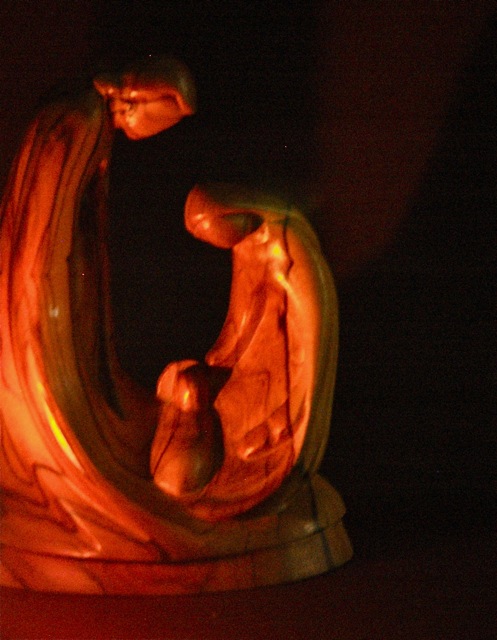Ex nihilo
But me he caught—reached all the way
from sky to sea; he pulled me out
Of that ocean of hate, that enemy chaos,
the void in which I was drowning.
They hit me when I was down,
but God stuck by me.
He stood me up on a wide-open field;
I stood there saved—surprised to be loved!
In Addiction & Grace, Gerald May writes about how we often substitute one addiction for another. We are compelled to fill our life’s emptiness: the void. When people are delivered from addiction, he writes, it’s because grace enables them to tolerate spaciousness, at least to some degree. Grace transforms the void in which we were dying, and we find ourselves in a wide-open field.
 A void and a wide-open field are both spacious, but in a very different sense. The void that meant loneliness is transformed into space that means freedom. A void lacks air and light and structure—it’s a nothing—and in it we’re aimless and can’t find direction. A wide-open field, on the other hand, is a generative space in which new life and purpose can unfold. It’s a riot of fresh air and little wild animals. We stand there saved, surprised to be loved!
A void and a wide-open field are both spacious, but in a very different sense. The void that meant loneliness is transformed into space that means freedom. A void lacks air and light and structure—it’s a nothing—and in it we’re aimless and can’t find direction. A wide-open field, on the other hand, is a generative space in which new life and purpose can unfold. It’s a riot of fresh air and little wild animals. We stand there saved, surprised to be loved!
For me, the surprise comes from being loved right there in the emptiness, in the place where I have nothing to comfort or distract me. I mean those times when nobody needs me and it’s clear that the world would go on without me; those times when I understand that my task in life is not to fix everybody and know everything. It’s plainness, mortality, and human limits. It’s those times when being with God is like sitting in silence in an empty, lightless room, hearing and saying nothing.
I’ve spent many hours over the years gazing at the carving in this photo. Today I am struck by the spaces around Mary and Joseph, and the space between them—the dark emptiness into which Love was born. I tried to photograph it in a way that would capture what I mean.

